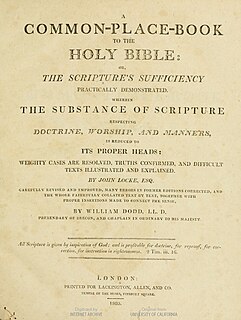 W
WChristian deism is a standpoint in the philosophy of religion stemming from Christianity. It refers to a deist who believes in the moral teachings—but not divinity—of Jesus. Corbett and Corbett (1999) cite John Adams and Thomas Jefferson as exemplars.
 W
WThe Church of Aphrodite is a religious group founded in 1938 by Gleb Botkin (1900–1969), a Russian émigré to the United States. Monotheistic in structure, the Church believes in a singular female goddess, who is named after the ancient Greek goddess of love, Aphrodite.
 W
WDianic Wicca, also known as Dianic Witchcraft, is a neopagan religion female-centered goddess ritual and tradition. While some adherents identify as Wiccan, it differs from most traditions of Wicca in that only goddesses are honored.
 W
WA false god is, in some monotheistic religious denominations, the deities of pagan religions – as well as other competing entities or objects to which particular importance is attributed. Conversely, polytheistic pagans may regard the gods of various monotheistic religions as "false gods" because they do not believe that any real deity possesses the properties ascribed by monotheists to their sole deity. Atheists, who do not believe in any deities, do not usually use the term "false god" even though that would encompass all deities from the atheist viewpoint. Usage of this term is generally limited to theists, who believe in some deity or deities, but not in others.
 W
WThe Great Architect of the Universe is a conception of God discussed by many Christian theologians and apologists. As a designation it is used within Freemasonry to represent the deity neutrally. It is also a Rosicrucian conception of God, as expressed by Max Heindel. The concept of the demiurge as a grand architect or a great architect also occurs in gnosticism as well as Hinduism.
 W
WHenotheism is the worship of a single, overarching god while not denying the existence or possible existence of other lower deities. Friedrich Schelling (1775–1854) coined the word, and Friedrich Welcker (1784–1868) used it to depict primitive monotheism among ancient Greeks.
 W
WKitab al-Tawhid, is the main Sunni theological book, and the primary source of the Maturidi school of thought; written by the Hanafi scholar Abu Mansur al-Maturidi.
 W
WShema Yisrael is a Jewish prayer, and is also the first two words of a section of the Torah, and is the title of a prayer that serves as a centerpiece of the morning and evening Jewish prayer services. The first verse encapsulates the monotheistic essence of Judaism: "Hear, O Israel: the LORD our God, the LORD is one", found in Deuteronomy 6:4.
 W
WSikhism ; Punjabi: ਸਿੱਖੀ or Sikhi, is a monotheistic and panentheistic religion that originated in the Punjab region of the Indian subcontinent around the end of the 15th century CE. Sikhism is one of the youngest of the major religions and the world's fifth-largest organized religion, with about 30 million Sikhs as of the early-21st century. However, according to rough estimates, there are around 120–150 million Nanak Naam Lewas people across the world who also believe in 10 Sikh Gurus and Guru Granth Sahib.
 W
WTawhid is the indivisible oneness concept of monotheism in Islam. Tawhid is the religion's central and single most important concept, upon which a Muslim's entire religious adherence rests. It unequivocally holds that God as per Islam is One and Single.
 W
WThe Shahada, also spelled Shahadah, is an Islamic creed, one of the Five Pillars of Islam and part of the Adhan. It reads: "I bear witness that there is no true deity but God, and I bear witness that Muhammad is the messenger of God."
 W
W"Thou shalt have no other gods before Me" is one of the Ten Commandments found in the Hebrew Bible at Exodus 20:2 and Deuteronomy 5:6. It is the central tenet of the Abrahamic religions and prohibits the religion's followers from worshipping gods other than the Lord. The sin of worshipping another god is called idolatry. Historically, the punishment for idolatry was often death.